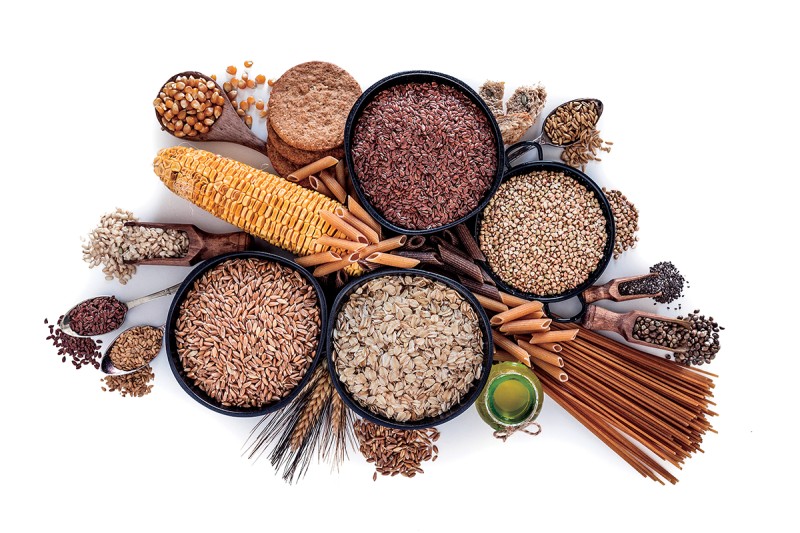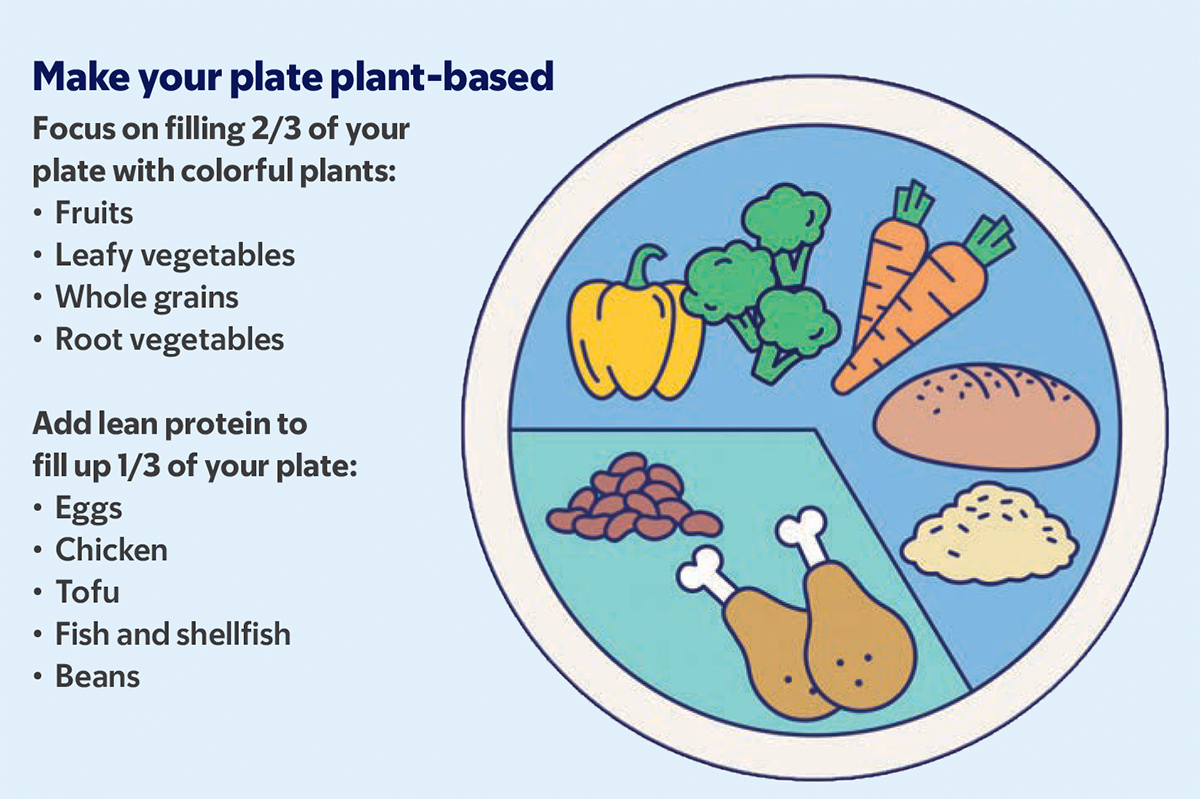
You may have heard about “fibermaxxing,” a new diet trend spreading on social media. It’s aimed at boosting daily fiber intake — most American adults get only half the recommended daily dose, according to the Centers for Disease Control and Prevention (CDC). People “fibermaxxing” want to meet or even exceed the recommended amount of fiber.
It’s important to remember that “fibermaxxing” isn’t a scientific or clinical term, so there is no exact definition of what it means. As with any social media diet trend, there may be useful information but also misinformation promoted, so it’s best to speak with a registered dietician to learn more.
Clinical dietitian-nutritionist Cara Anselmo, MS, RDN, is an expert in breast cancer nutrition and is a certified specialist in obesity and weight management at Memorial Sloan Kettering Cancer Center (MSK). “Eating enough fiber is often overlooked as one of the healthiest things we can do for ourselves,” Anselmo says.
Will eating more fiber — or “fibermaxxing” — help prevent cancer? How much dietary fiber do you really need to reduce your cancer risk?
What does fiber help with and why is it good for you? Fiber not only improves heart health, reduces diabetes risk, and aids in weight control, it may reduce the risk of several common cancers such as colorectal cancer.
How Does Fiber Reduce the Risk of Colorectal Cancer?
Consuming more dietary fiber has long been linked to a lower risk of certain types of cancer, particularly colorectal cancer. Colon cancer rates are increasing among young adults. Because less than 10% of adults are getting enough fiber, scientists think the two may be connected.

Fiber improves your microbiome: One of the main ways that fiber helps to protect against colon cancer, according to Anselmo, is by fostering a healthy population of bacteria in the colon, known as the microbiome. Fiber remains in the colon after other components of the food become absorbed in the body.
Fiber reduces inflammation: “When fiber is fermented by the bacteria in our colon,” says Anselmo, “it produces metabolites, which reduce inflammation and protect the colon cells from becoming cancerous.” These metabolites can also activate our immune system and increase our anti-cancer immunity.
Fiber lowers cholesterol and exposure to unhealthy foods: Fiber also has several other effects that improve our metabolic health, which indirectly lowers the risk of several cancers. For example, fiber can increase the speed at which food passes through our gut, which can lower absorption and exposure time to less healthy foods we may have consumed. Fiber can also lower cholesterol levels.
What Is a High-Fiber Diet?
A high-fiber diet means you eat foods that are rich in this type of carbohydrate, found mainly in plant foods such as fruits, vegetables, whole grains, beans, and legumes. Consuming more than 25 to 30 grams of fiber per day is generally considered to be a high-fiber diet.

How Much Fiber Do You Need?
The MSK registered dietitian-nutritionist team recommends that most people aim for 25 grams of fiber per day. “Consume the bulk of your fiber from whole foods like whole grains, vegetables, and fruit,” advises Anselmo. Fiber-supplemented products are not likely to be harmful and may have some benefits but aren’t ultimately as healthful as whole food sources. She also suggests adding fiber gradually, through simple changes such as switching white breads and pastas to whole grain or whole wheat sources.
Should You Be “Fibermaxxing” to Prevent Cancer?
While a fiber-rich diet has many health benefits, eating much more fiber than your body needs won’t prevent cancer. Anselmo also says a rapid increase in fiber intake — “fibermaxxing” — can cause digestive issues. It is important to stay well hydrated when increasing dietary fiber intake in order to minimize potential symptoms such as bloating and abdominal discomfort as your gastrointestinal tract adapts to new changes. She also stresses that patients should always ask their cancer care team if they should follow any special diet before, during, or after treatment.
The Two Kinds of Fiber: Soluble vs. Insoluble Fiber
There are two main types of dietary fiber — soluble and insoluble. Both types of fiber are healthy and can lower cancer risk. Soluble fiber attracts water into the intestines and becomes a gel. Soluble fiber can help lower blood sugar and cholesterol levels.
Foods higher in soluble fiber include:
- Apples
- Bananas
- Beans
- Berries
- Citrus fruits
- Oats
- Peas
Insoluble fiber doesn’t dissolve in the stomach. Insoluble fiber can improve digestion by helping to move food through your digestive system and bulk up stool to help prevent constipation. Foods higher in insoluble fiber include:
- Whole grain foods
- Some vegetables
- Nuts and seeds
How Is MSK Researching the Role of Fiber and Cancer?
Studies are underway to help determine a person’s optimal dose of fiber to prevent cancer, based on their biology, genetics, and lifestyle.
MSK is also investigating which bacteria are involved in fermenting fiber into the metabolites that protect against various cancers, including breast, skin, prostate, colon, and rectal cancer. If scientists can identify a specific bacterial signature, other interventions such as bacterial transplants may work to reduce cancer risks.
Finally, there are ongoing studies testing whether fiber intake and certain probiotic compounds might enhance the effectiveness of chemotherapy and immunotherapy.